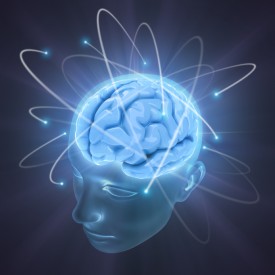Path Out of Poverty? Education Plus Neuroscience
Jul 14, 2015Research has indicated children who are raised in poverty are at a possible disadvantage for academic success. How can this cycle be broken?  Read more from Dr. Martha Burns on how poverty can affect cognitive functions and what solutions are available to help mitigate its long term effects.
Read more from Dr. Martha Burns on how poverty can affect cognitive functions and what solutions are available to help mitigate its long term effects.
Can Auditory Training in Babies Impact Speech and Language Development?
May 12, 2015 New research indicates that babies' brains can be trained to discriminate sounds, which are the building blocks of language. Could this lead to better cognitive and language skills later on in life?
New research indicates that babies' brains can be trained to discriminate sounds, which are the building blocks of language. Could this lead to better cognitive and language skills later on in life?
4 New Research Findings About Autism
Apr 21, 2015 With 1 in 68 children being diagnosed with autism, what are some of the latest research findings on autism? What are some of the interventions that might be effective in children with autism? Take a look as Dr. Martha Burns explores 4 new research findings on autism.
With 1 in 68 children being diagnosed with autism, what are some of the latest research findings on autism? What are some of the interventions that might be effective in children with autism? Take a look as Dr. Martha Burns explores 4 new research findings on autism.
Alternatives to Medication in the Treatment of ADD
Mar 24, 2015 Attentional problems in students have increased over the last few years and these problems can create significant learning challenges for students. What are some alternatives to medication in treating ADD and other attentional problems?
Attentional problems in students have increased over the last few years and these problems can create significant learning challenges for students. What are some alternatives to medication in treating ADD and other attentional problems?
How Learning A New Language Actually Rewires the Brain
Feb 17, 2015 How can learning a new language rewire the brain? Take a look at the latest research into how the brain responds when learning a new language and how this has the potential to impact lifelong learning and cognitive control.
How can learning a new language rewire the brain? Take a look at the latest research into how the brain responds when learning a new language and how this has the potential to impact lifelong learning and cognitive control.
Reading to Learn: Do We Expect Too Much of Fourth Graders?
Nov 10, 2014 A new study out of Dartmouth University shows that the 4th grade “shift” from learning to read to reading to learn isn’t as clear cut as educators have thought. What does the study reveal about reading development and what does it mean for teachers?
A new study out of Dartmouth University shows that the 4th grade “shift” from learning to read to reading to learn isn’t as clear cut as educators have thought. What does the study reveal about reading development and what does it mean for teachers?
Inside the Brain of a Struggling Reader [Infographic]
Sep 16, 2014 When a child struggles to read, we look to factors such as socioeconomic status or access to books. But brain differences are also part of the equation and should not be overlooked.
When a child struggles to read, we look to factors such as socioeconomic status or access to books. But brain differences are also part of the equation and should not be overlooked.
Dyslexia – How Far We’ve Come!
Aug 5, 2014 We’ve come a long way in understanding dyslexia since the term was first used more than 40 years ago. Find out what the latest research says about the dyslexic brain and learn about neuroscience-based interventions that are proven to help.
We’ve come a long way in understanding dyslexia since the term was first used more than 40 years ago. Find out what the latest research says about the dyslexic brain and learn about neuroscience-based interventions that are proven to help.
Keep Learning This Summer - Four Must-Watch Webinars for Teachers
Jun 10, 2014 School’s out for summer! While it’s a great time to relax and reset before the start of the next school year, it’s also a great time to catch up on professional development. This summer, check out some of Scientific Learning’s most popular webinars on brain science topics to help your students.
School’s out for summer! While it’s a great time to relax and reset before the start of the next school year, it’s also a great time to catch up on professional development. This summer, check out some of Scientific Learning’s most popular webinars on brain science topics to help your students.
How to Tell When Neuroscience-Based Programs are Well-Developed
Mar 25, 2014 Many technology programs claim to improve brain function, including memory and attention skills. How can you get through all the hype and determine which brain exercises incorporate the important design features that have been shown to be effective?
Many technology programs claim to improve brain function, including memory and attention skills. How can you get through all the hype and determine which brain exercises incorporate the important design features that have been shown to be effective?
Pages

